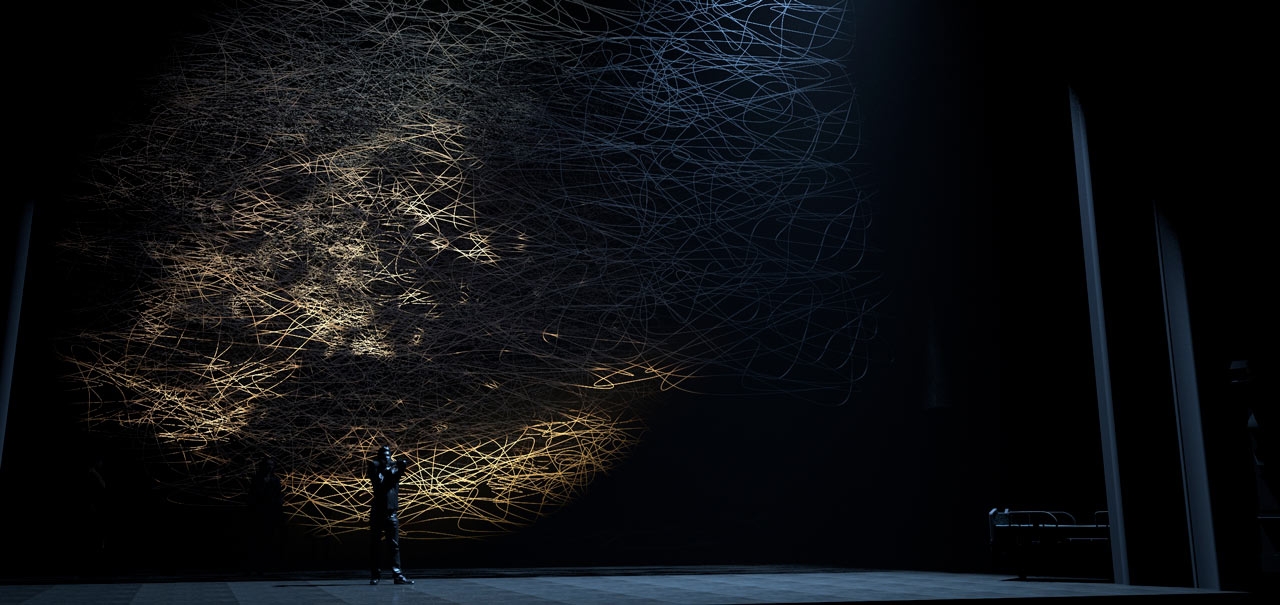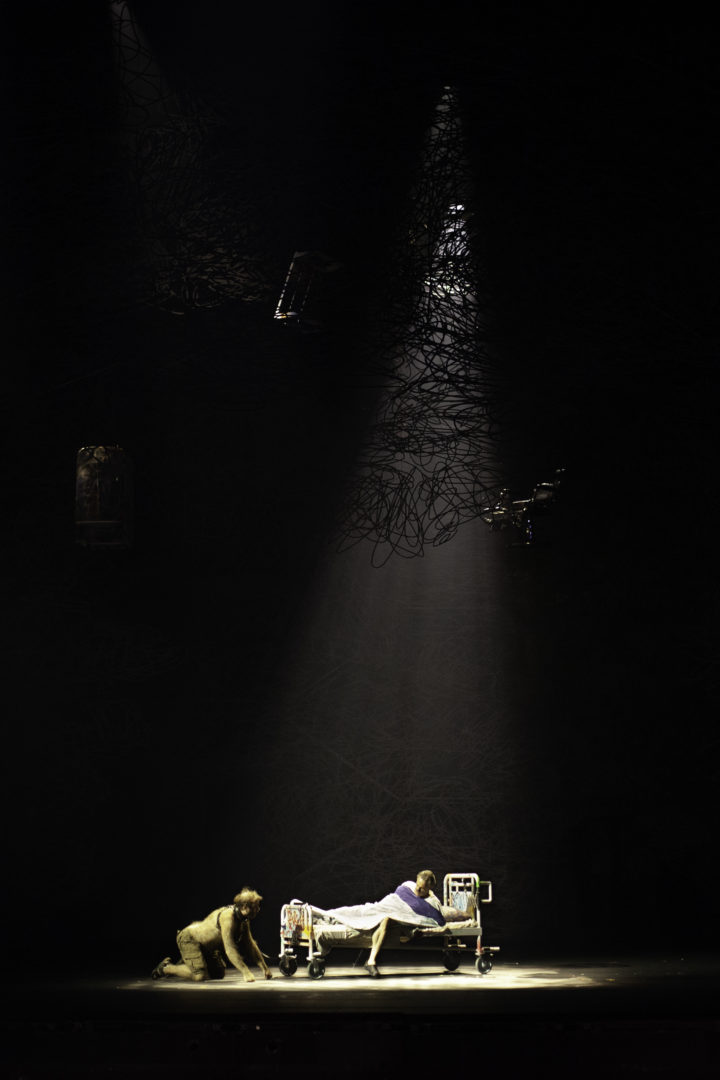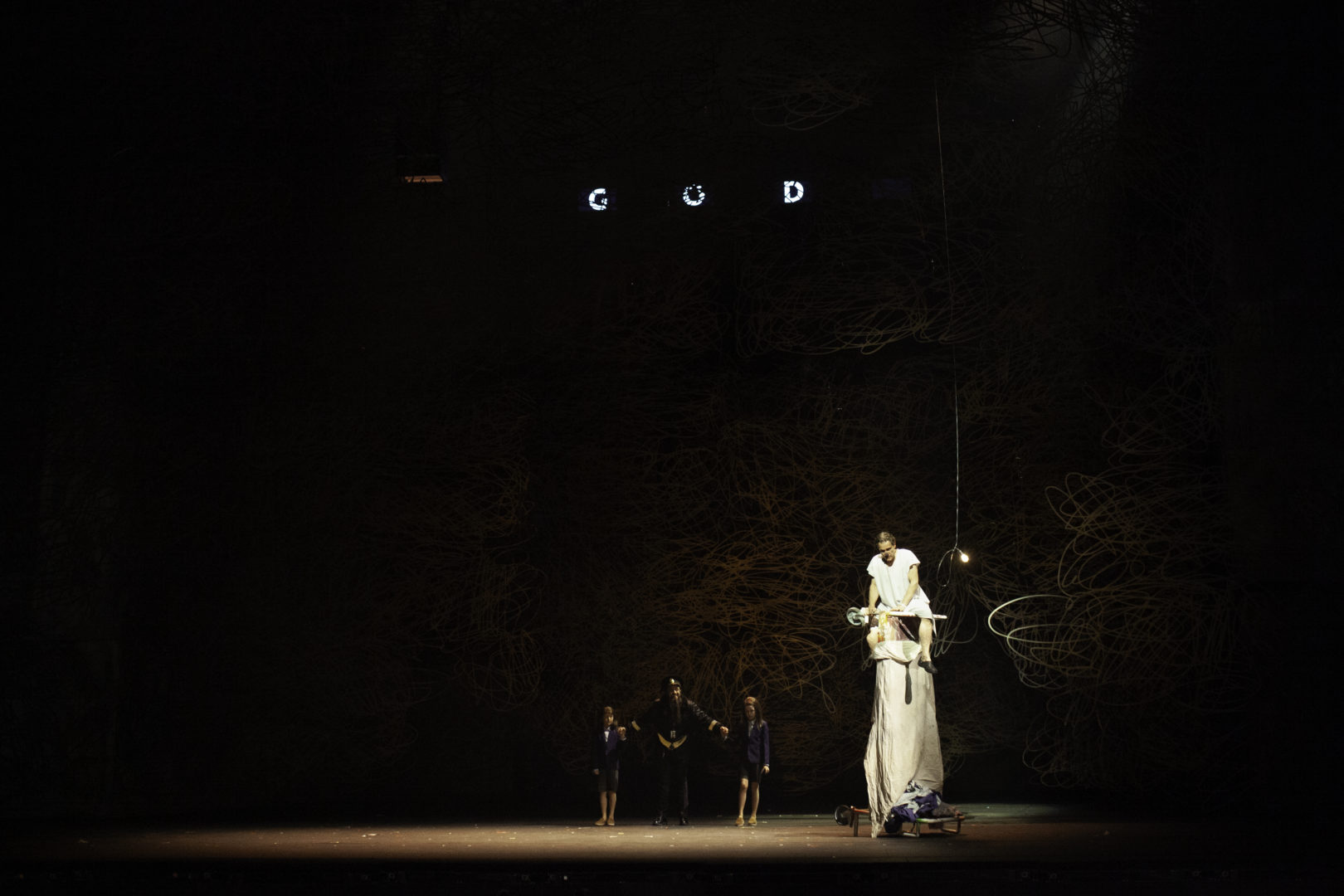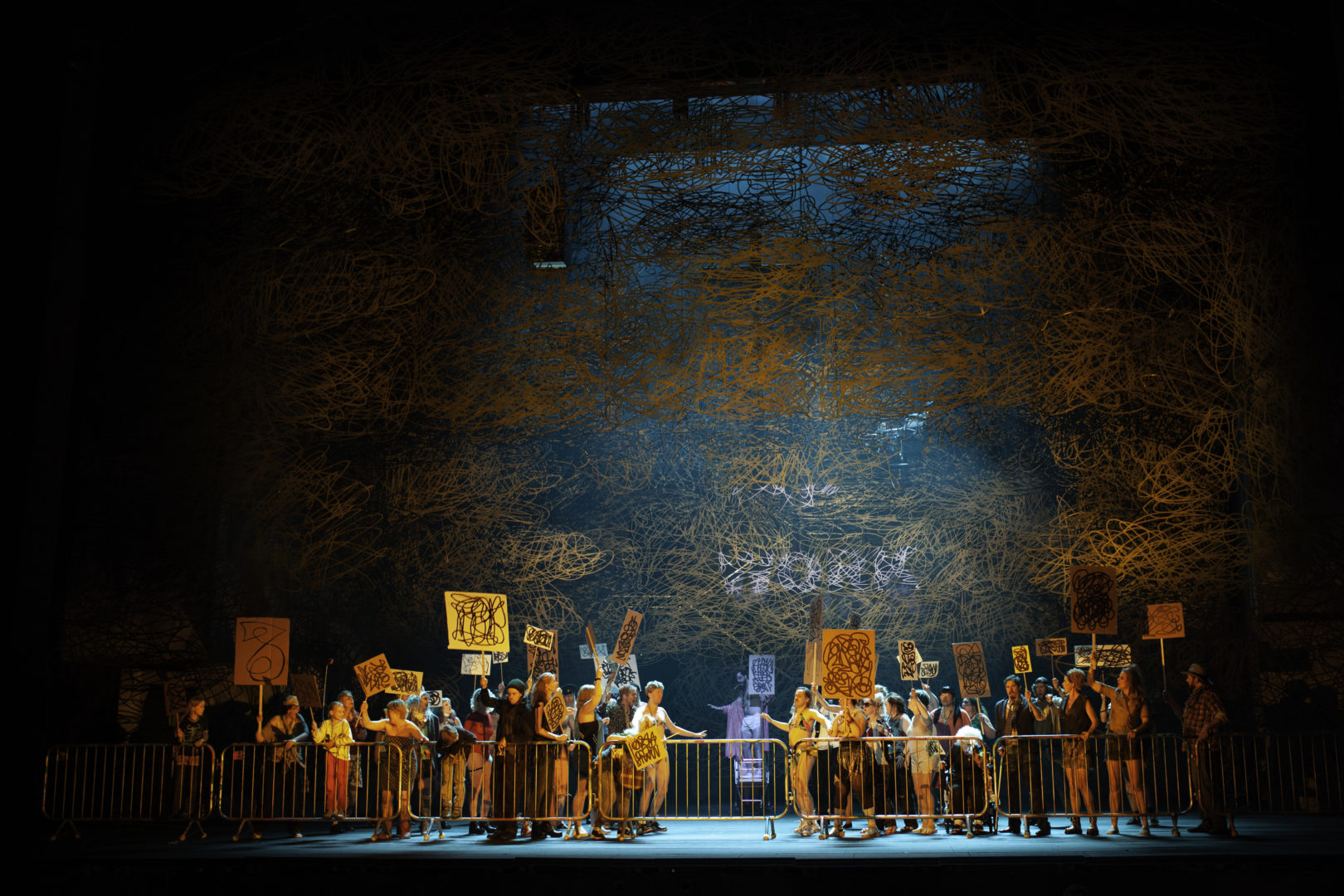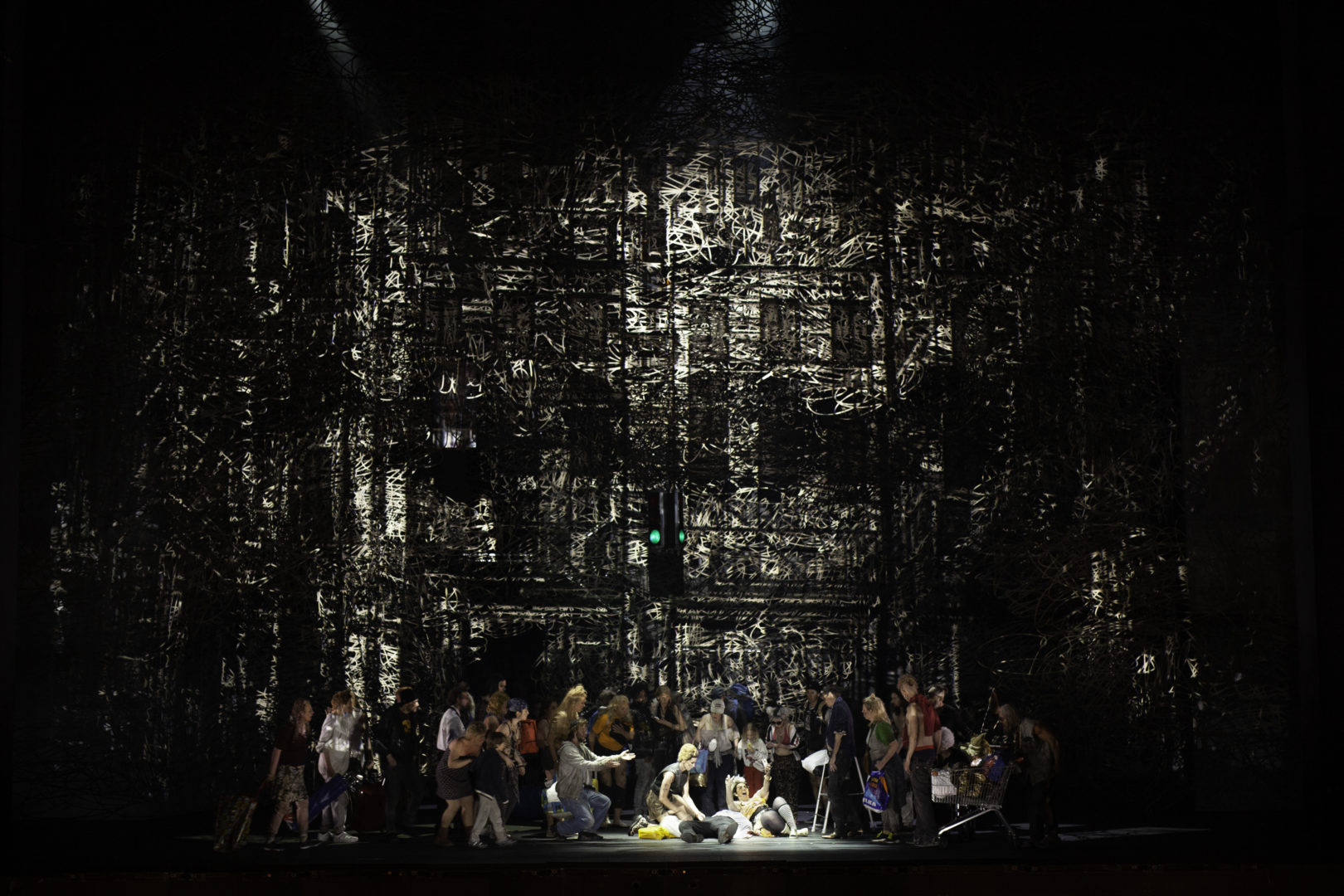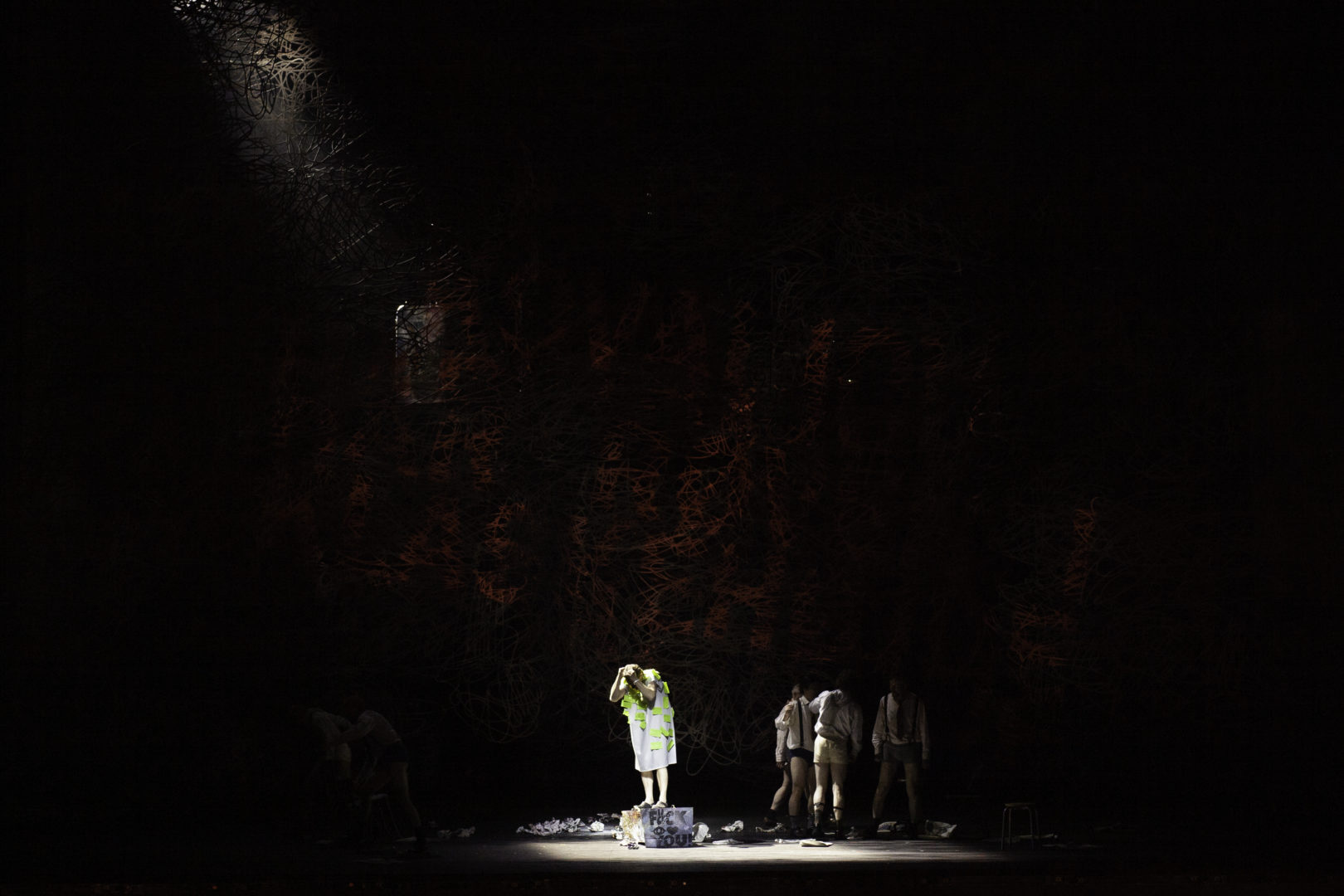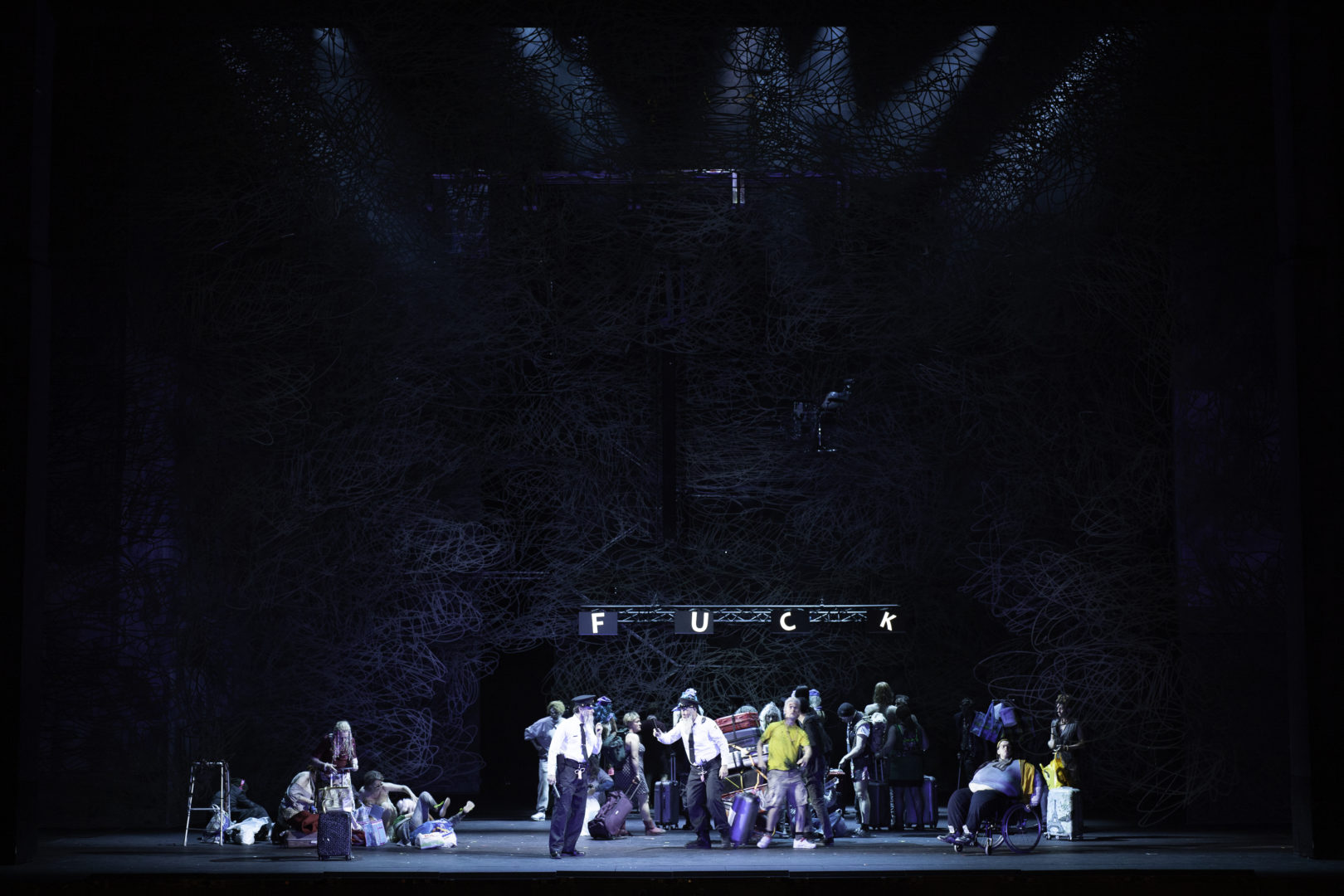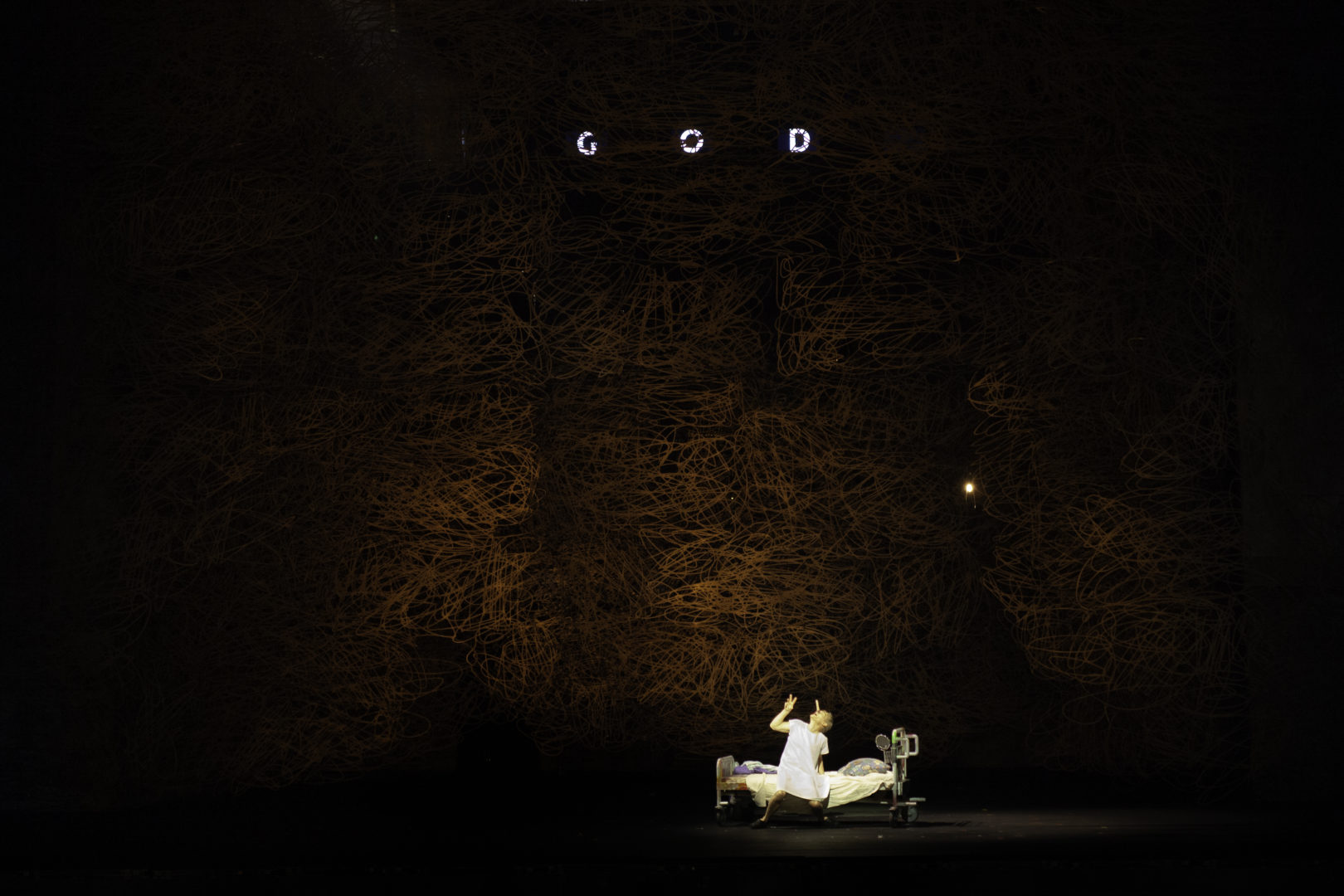Dmitri Shostakovich’s opera The Nose, based on a short story by Nikolai Gogol, tells the story of a nose that detaches itself from its owner’s face and rises above him in the social ladder. To the classic tale, published by Gogol in 1835-36, is added the point of view of Shostakovich, who composed his opera in 1927-1930, during the tumultuous inter-war period in the Soviet Union. In any case, The Nose cannot be treated merely as an absurdist plaything, because Shostakovich’s music is conceived as a fierce, mercilessly sarcastic caricature of the hierarchical, class-ridden society of Tsarist times.
The universes that come to mind have to do with Surrealism and with Freud himself, with Kafka, with the first Brecht (the craziest and most caustic), the Absurd, Boris Vian (and his metaphorical lightness), Orwell in 1984 (and his X-ray of totalitarianism), Genet in The Balcony, even some dystopian and dreamlike fantasies of science fiction cinema…
The Nose leads us to the world of the high political and economic hierarchies. It inhabits architectural forms representative of social power: skyscrapers, banks, financial and governmental headquarters. What we were looking for was a staging in which the audience would recognise their own world, the one that appears daily on the news, and would suddenly feel a sense of unease.
